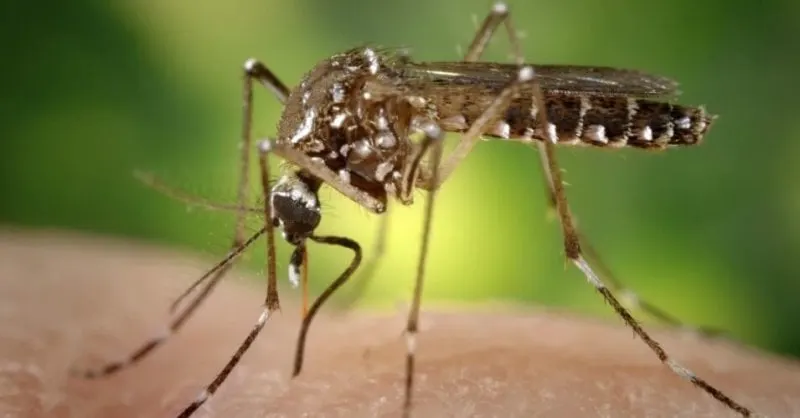Mini-capsule technology controls mosquitoes without insecticides
Mini-capsule technology controls mosquitoes without insecticides


The World Health Organization (WHO) estimates there are 390 million dengue infections per year, with approximately half of the world’s population at risk. The number of dengue cases reported to the WHO has increased more than 15-fold during the past two decades. Aedes aegypti is an invasive species of mosquitoes that transmits diseases like malaria, Zika, dengue and yellow fever.
The mini-capsule technology works by using a proprietary system that Oxitec developed to hold the eggs of its non-biting, self-limiting Aedes aegypti males. When placed in a small box of water, the capsule releases the males, which then disperse to mate with wild-type female Aedes aegypti in an area of up to two or more acres. Because the males contain a self-limiting gene, the offspring they produce do not live to maturity, thus naturally suppressing the population.
The Indaiatuba trial was conducted by placing the mini-capsule products in residential properties once per week, resulting in rapid suppression over an area of approximately 1,000 people. The trial demonstrated 100 percent effectiveness of the female larvae-killing feature while validating its full biosafety. Oxitec also commissioned independent research that found 94 percent of the 1,200 Indaiatuba residents surveyed supported the technology and its use in their neighborhoods.
“This trial was ground-breaking,” said Oxitec CEO Grey Frandsen in a press statement. “To start fighting back against the expansion of Aedes aegypti-transmitted diseases, we need an entirely new generation of economically accessible vector control tools that can empower a broader coalition to participate in the fight. As we’ve successfully demonstrated in this trial, our ‘Friendly’ mini-capsule approach is just that. This trial exceeded our performance targets and we’re now preparing for our next larger field trials.”
Earlier this month, the U.S. Environmental Protection Agency (EPA) granted Oxitec an Experimental Use Permit (EUP) for piloting this same technology in the United States.
The mini capsule is being developed to be the first insect-based Aedes aegypti technology that can be manufactured in centralized facilities around the world and then shipped, stored and deployed on demand anywhere, without the need for expert staff or special equipment or tools for handling.
It is intended to be a cost-effective, customizable approach to successfully controlling the disease-carrying mosquitoes in a range of environments “further unlocking the benefits of biological public health solutions for governments, communities and other end-users of all types and income levels,” according to the press statement.

 | Videos | More... |

Video: Nuclear energy will destroy us? Global warming is an existential threat? Chemicals are massacring bees? Donate to the Green Industrial Complex!
 | Bees & Pollinators | More... |

GLP podcast: Science journalism is a mess. Here’s how to fix it

Mosquito massacre: Can we safely tackle malaria with a CRISPR gene drive?

Are we facing an ‘Insect Apocalypse’ caused by ‘intensive, industrial’ farming and agricultural chemicals? The media say yes; Science says ‘no’
 | Infographics | More... |

Infographic: Global regulatory and health research agencies on whether glyphosate causes cancer
 | GMO FAQs | More... |

Why is there controversy over GMO foods but not GMO drugs?

How are GMOs labeled around the world?

How does genetic engineering differ from conventional breeding?
 | GLP Profiles | More... |

Alex Jones: Right-wing conspiracy theorist stokes fear of GMOs, pesticides to sell ‘health supplements’




 California, Washington, Oregon forge immunization alliance to safeguard vaccine access against federal undermining
California, Washington, Oregon forge immunization alliance to safeguard vaccine access against federal undermining Trust issues: What happens when therapists use ChatGPT?
Trust issues: What happens when therapists use ChatGPT? Fighting deforestation with CO2: Biotechnology breakthrough creates sustainable palm oil alternative for cosmetics
Fighting deforestation with CO2: Biotechnology breakthrough creates sustainable palm oil alternative for cosmetics Viewpoint — Fact checking MAHA mythmakers: How wellness influencers and RFK, Jr. undermine American science and health
Viewpoint — Fact checking MAHA mythmakers: How wellness influencers and RFK, Jr. undermine American science and health 30-year-old tomato line shows genetic resistance to devastating virus
30-year-old tomato line shows genetic resistance to devastating virus Viewpoint: Video — Big Solar is gobbling up productive agricultural land and hurting farmers yet providing little energy or sustainabilty gains
Viewpoint: Video — Big Solar is gobbling up productive agricultural land and hurting farmers yet providing little energy or sustainabilty gains The free-range chicken dilemma: Better for birds, but with substantial costs
The free-range chicken dilemma: Better for birds, but with substantial costs ‘You have to treat the brain first’:Rethinking chronic pain with Sanjay Gupta
‘You have to treat the brain first’:Rethinking chronic pain with Sanjay Gupta
